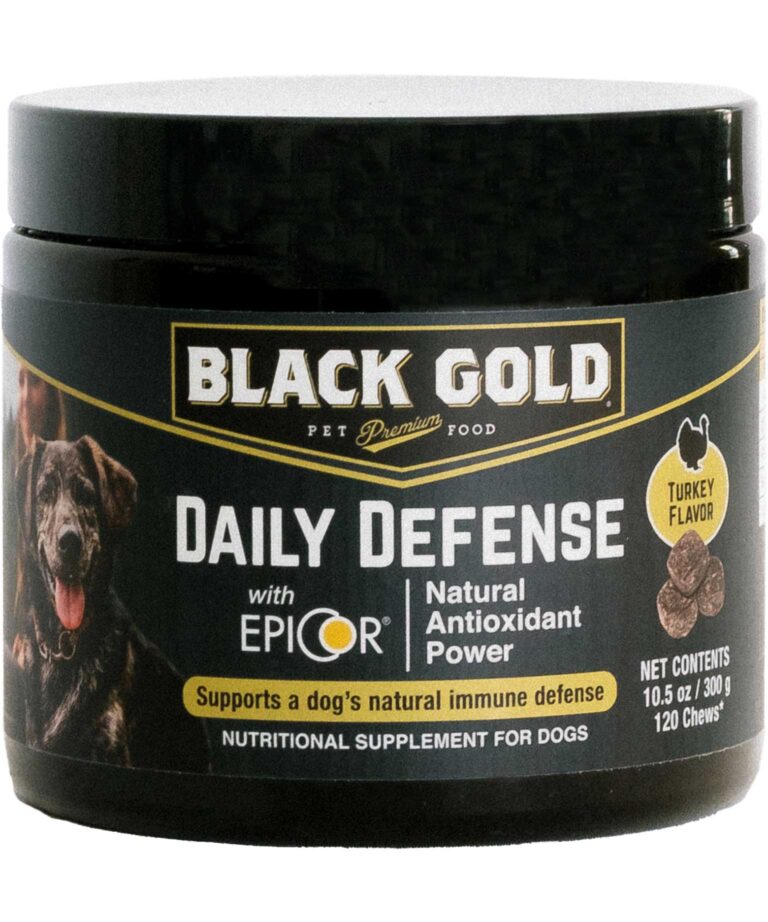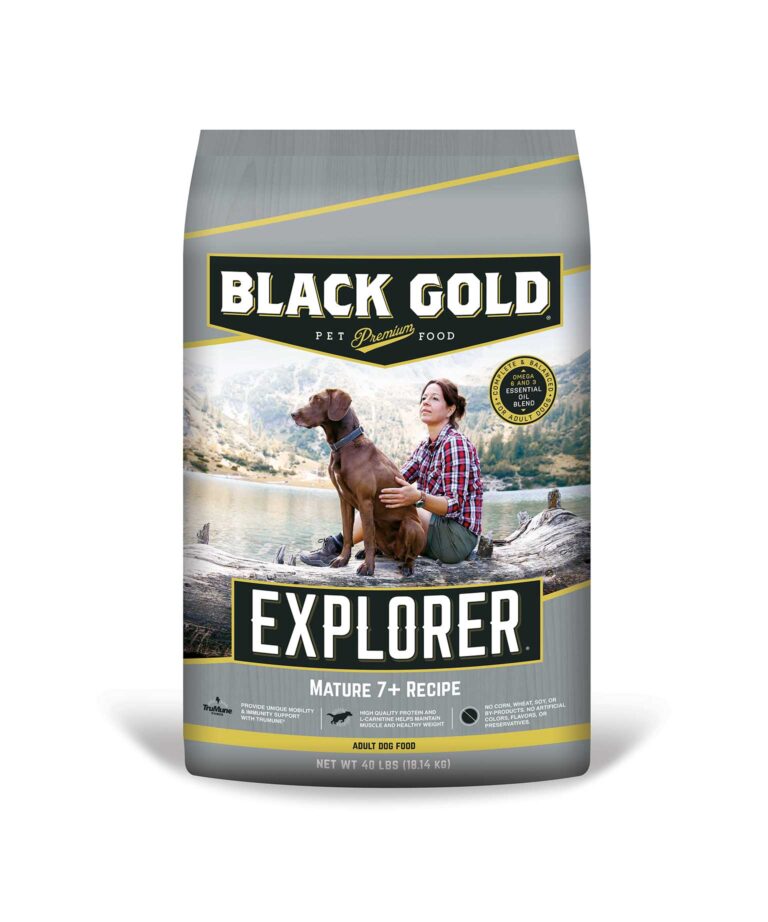A Guide to Boosting Your Dog’s Immune System

Your brave and fearless companion will go where you go. So when you set out on your adventure, knowing they’re protected from infection is a top priority. A healthy immune system is critical for puppies and senior dogs who are more vulnerable to disease, but it’s also necessary for general health and well-being throughout their lifespan.
In this guide, we’ll delve into the intricacies of your dog’s immune system, explore signs and causes of a weakened immune system, and explore how nutrition and supplements can offer support.
Understanding Your Dog’s Immune System
Your dog’s immune system is a complex network of cells and organs working tirelessly to protect against harmful invaders like toxins, bacteria, and viruses. Much like humans, it’s distributed throughout the body. It’s comprised of:
- White blood cells which detect and protect against infection
- Antibodies that attach to viruses and bacteria and remove them from the body
- Bone marrow which produces blood cells
- The thymus gland which turns white blood cells into T-cells. These attack and destroy pathogens such as viruses.
- Fur, skin and nails are external defenses that are a barrier against pathogens.
Signs and Causes of a Weakened Immune System
Several factors can compromise your dog’s immune system, ranging from age-related declines to environmental stressors and dietary inadequacies. Puppies, for instance, have developing immune systems that require time to mature, while older dogs often experience a decline in T-cell production—a vital component of immune function. Allergies, stress, certain medications, and poor diet choices can also weaken the immune system, leaving your dog vulnerable to illness.
When your companion isn’t feeling their best, a compromised immune system might be the reason why. Certain symptoms might hint at a particular condition, while others could signal broader concerns related to their diet, lifestyle, or overall health. It could be time to call your vet if you observe:
- Vomiting
- Diarrhea
- Loss of appetite
- Fatigue or weakness
- Rashes or Itchy skin
- Joint pain or loss of mobility
- Sores or lesions
Nutrition and the Immune System
Did you know that 70 to 90% of your dog’s immune system is found in their gut? Arm your canine companion with proper nutrition and you’ll support their robust immune system at every age. Look for a pet food that offers a well-balanced diet formulated with optimal levels of protein, Omega-3 fatty acids, vitamins, minerals and more. Additionally, incorporating probiotics and prebiotics into your dog’s diet can promote gut health, a crucial aspect of overall immunity. Avoiding empty calories and highly processed foods is also important to your canine companion’s overall nutrition.
How Supplements May Help
In certain cases, supplements may be beneficial for bolstering your dog’s immune system.
- Some nutrients that play important roles for immunity, like vitamin D, can be supplemented in excess, so always check in with your vet before adding them in.
- Probiotics are very safe and are known to support digestive health and strengthen the immune system. They can help a dog with a temporary case of diarrhea, ease stress such as a move to a new home or provide relief during chemotherapy. Look for high-quality, multi-strain probiotics specifically for dogs.
- Omega-3 fatty acids derived from sources like fish oil can also provide immune support, but it’s essential to follow dosage instructions to avoid adverse effects.
8 Tips for Boosting Your Dog’s Immune System
1. Stay up to date on vaccinations to protect against serious diseases like rabies, parvovirus, canine influenza, hepatitis, and others. Your vet can ensure your dog gets the right shot at the right time, usually every one to three years.
2. Feed a quality diet rich in essential nutrients. It should include optimal levels of protein, carbohydrate and fat, Omega-3 fatty acids, antioxidants, minerals and vitamins.
3. Maintain your dog’s healthy weight through proper diet and regular exercise. Being overweight or underweight puts stress on their immune system and makes them more susceptible to illness.
4. Provide regular physical activity to support overall health and immune function.
5. Incorporate stress-reducing activities like massage into your dog’s routine. Gently kneading and rubbing their muscles calms their nervous system and activates the lymphatic system.
6. Keep your dog clean with regular baths to reduce exposure to bacteria and allergens.
7. Choose functional treats and supplements designed to support immune health.
8. Ensure cleanliness by regularly sanitizing bowls and toys to minimize germ exposure.
A Vital Defense Mechanism
Your dog’s immune system requires proper care and attention to be ready for adventure. Black Gold Explorer® offers optimal levels of high-quality protein and fats, and is free from corn, wheat, soy and byproducts. Our special recipes also add the power of TruMune® to support canine mobility and immunity. Remember to consult with your vet for your dog’s specific needs. With a proactive approach to immune support, your trusty companion will have the best possible chance at a long and vibrant life.



